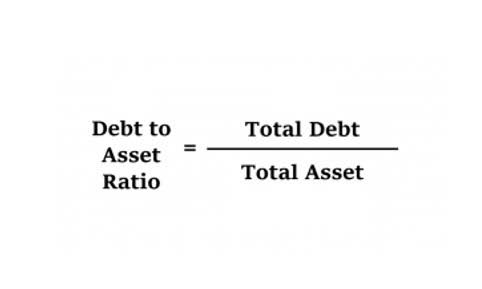Accountants are tax savvy, but they can do far more than help complete your filing each year. They understand the ins and outs of tax law and continue their education to stay current on any changes that impact your specific financial situation. This lets them effectively help you to maximize deductions and minimize liabilities. In other words, you can have more peace around knowing you didn’t miss a crucial write-off or failed to uphold a regulation. Hiring an accountant can help you save money on taxes and provide financial advice to help you increase profits and decrease costs. Hiring an …

Accountants are tax savvy, but they can do far more than help complete your filing each year. They understand the ins and outs of tax law and continue their education to stay current on any changes that impact your specific financial situation. This lets them effectively help you to maximize deductions and minimize liabilities. In other words, you can have more peace around knowing you didn’t miss a crucial write-off or failed to uphold a regulation. Hiring an accountant can help you save money on taxes and provide financial advice to help you increase profits and decrease costs. Hiring an accountant can be a smart investment, especially when managing your finances becomes more complex or time-consuming.
Hire a Professional, Do It Yourself, or Do Both?
Although not all accountants are normal balance certified public accountants (CPAs), obtaining a CPA license is required for many accounting roles. In this article, we’ll cover what an accountant does and some common accounting roles. A CPA is necessary when the situation requires specialized expertise, certification or legal representation. For example, only a CPA can perform financial audits, issue audited financial statements for public companies and represent clients before the IRS during an audit or tax dispute. Individuals with complex tax issues, business income, significant investment income or estate planning concerns may also prefer working with a CPA for more advanced tax planning and compliance.
- Accountants may charge hourly, offer fixed fees for specific services, or work on a retainer basis for ongoing support.
- They help develop and track personal budgets, categorizing income and expenses to create a clear spending plan.
- Time spent wrestling with spreadsheets could be better invested in growing your business, enjoying personal pursuits, or simply relaxing.
- Or you may overlook expenses that could provide some tax benefits.
- For example, only a CPA can perform financial audits, issue audited financial statements for public companies and represent clients before the IRS during an audit or tax dispute.
TURBOTAX ONLINE/MOBILE OFFERS & PRICING

Knowing what to expect helps you budget smarter and avoid surprise costs. Explore the responsibilities, skills, and educational requirements of tax managers. Get the details about education, experience, and licensure requirements for this profession with this in-depth guide. Prior to becoming a tax accountant, I had various jobs ranging from landscaping to retail to interning at a large financial institution. These experiences all helped me learn about some of the attributes I want in my career, such as the ability to serve others, have independence, and be entrepreneurial. These experiences also taught me the value of hard work, and I think that has certainly helped me in my journey to being a tax accountant.

Check certifications
As a result, you’ll need both the receipt and the bookkeeping process to demonstrate that you’re eligible for the tax deduction. Simply put, a personal accountant is someone who can handle all your personal finance needs. HKICPA terminated all recognition of overshare bodies in 2005 for accreditation under professional accountants ordinance. In general, all British RQBs except for CIPFA were re-accredited. An Enrolled Agent (EA) is a federally authorized tax practitioner empowered by the U.S.

Is Hiring a Personal Accountant Worth It?

You’ve been managing things well up until now, why should you hire a professional? While not all clients are the same, they all deal with personal financial complexity. There are many tasks that personal accountants can accomplish for their clients, depending upon their needs. That expertise and flexibility is crucial to what do personal accountants do their skillset and usefulness.
Option 1: Use an Expert
On average, hiring an accountant in the US costs between $150 and $400 per hour, depending on their credentials, experience, and the complexity of your needs. Additionally, CPAs are subject to state licensing requirements, ethics rules and continuing education, which may provide additional assurance of professional oversight and qualifications. In a world context, CPAs drive the financial reporting and advisory services in business and the financial industry to foster growth and success. By far, one of the most rewarding aspects of my job is providing valuable guidance to business owners and helping them reach their goals and grow their businesses. Overall, you will likely spend at least four years in school and multiple years gaining experience in entry-level and junior tax accounting roles. Senior and managerial tax accounting positions typically require at least five years of experience, depending on the employer.
- Credited to Luca Pacioli, this system established the basic accounting principles that are still in use today.
- The accountant will prepare reports on a regular basis that explain all of your expenses while also providing financial advice.
- To set your accountant’s fees, you need to consider the professional services your business requires from the accountant.
- Today’s accountants are way more than number crunchers—think of them as financial weather people.
- This could be especially true if your tax situation is pretty simple or you feel reasonably confident about your taxes.
For example, if the gift is a property and the How to Run Payroll for Restaurants recipient intends to use it immediately, you may be able to avoid paying taxes entirely. These are provisions that a personal accountant can look for in order to avoid paying taxes. As a result, your dividends will be no more than $228,000 at most. However, if you invest that money in a life insurance policy, you will receive the entire amount ($300,000 plus interest). To summarize, a personal accountant will assist you in making sound business decisions. It happens to everyone, and sometimes more frequently than you might expect.



